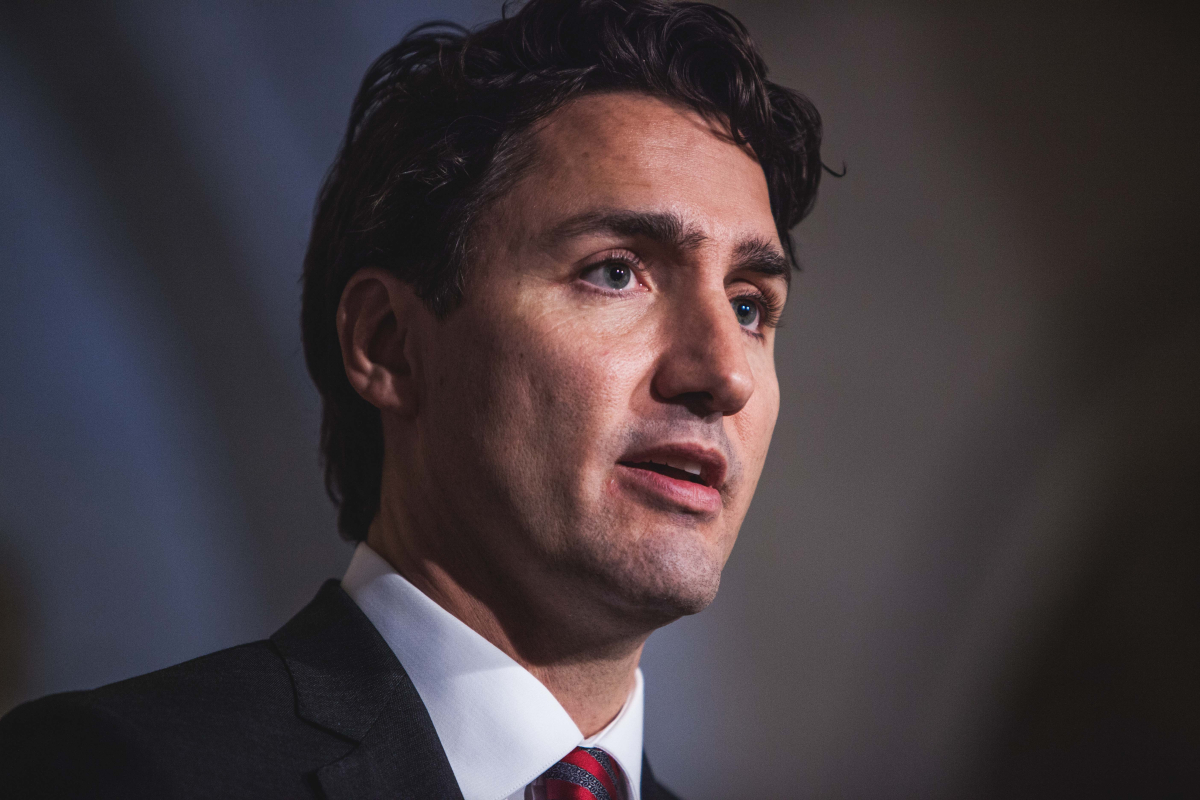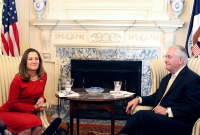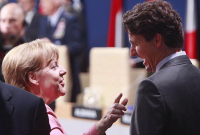Support strong Canadian climate journalism for 2025
Only days after key members of his cabinet wrapped up meetings with the Trump administration, Prime Minister Justin Trudeau's office has announced that the two leaders will meet in person for the first time on Monday — on the eve of Valentine's Day.
But unlike Trudeau's much-talked about "bromance" with former President Barack Obama, the meeting with President Donald Trump has been clouded in uncertainty, after weeks of back-and-forth about setting a tangible agenda beyond pleasantries and first-encounter photo ops.
Several people familiar with the planning said uncertainty about the date lingered for a reason — the Canadian side wanted specific results, while the American administration is still busy getting its cabinet confirmed.
The scheduling drama was further fuelled by a spectacular public rift between Trump and the president of Mexico last month, scrubbing plans for a potential trilateral meeting of the continent's Three Amigos.
Now, it's finally on: Justin Trudeau will fly to Washington for a meeting with the new president on Monday, both countries confirmed in statements after weeks of rampant rumours about the when and where.
"Strong Canada-U.S. ties help the middle class in both our countries," Trudeau tweeted Thursday.
"Monday, I'll meet @realDonaldTrump in D.C. to keep working for that goal."
The White House announced the encounter at its daily press briefing, where spokesman Sean Spicer said: ''The president looks forward to a constructive conversation in strengthening the deep relationship that exists between the United States and Canada.''
The countries had discussed numerous potential plans for a first encounter. The Canadian side considered different destinations designed to leave a positive first impression of trade with Canada — and avoid the brunt of Trump's trade-skeptical agenda.
The Canada-U.S. border was one destination under consideration — the idea was raised in a December interview by Canada's U.S. ambassador David MacNaughton. The new administration wants a massive construction-jobs program, and there are several big projects underway along the border.
Another early idea considered was a U.S. manufacturing facility — the goal being to emphasize the nine million American jobs tied to trade with Canada.
The Canadian government keeps repeating that number again, and again. It's working to drill that figure into the memory of every American it meets. Different cabinet ministers were in Washington this week, reciting that statistic with metronomic regularity.
The latest was Finance Minister Bill Morneau. In a speech to Georgetown University, he referred to the nine million jobs; the fact that trade-related jobs pay more; and the fact that trade surpluses and deficits are fairly even in the northern half of the continent, which appears to be a priority for the Trump team.
"I think Americans intuitively understand the strength of the relationship,'' Morneau later said.
"But the specifics, and the specific advantage... that's up to us to communicate... I think that's an important job all of us are trying to achieve."
Trump's rift with Mexico hinted at the scare scenario for trading partners like Canada.
The U.S. president promised some kind of border tax would make Mexico pay for the wall he intends to build. Canada has launched a pre-emptive warning over the idea, with Foreign Affairs Minister Chrystia Freeland saying Ottawa would retaliate if hit with any such border tax.
The good news is that the conversation about U.S. corporate-tax reform is only just beginning — every idea floated so far for a foreign-goods penalty has found some criticism, even within the Republican party.
Freeland said she left Washington feeling optimistic that the U.S. wants a co-operative relationship. In a possible hint of the conversation next week between Trump and Trudeau, she said that in her meetings she discussed making trade easier with Canada.
One idea Freeland specifically mentioned: extending pre-clearance for cargo, amid ongoing pilot projects to screen train passengers before they board so they bypass customs logjams.
"Our conversations focused on ways to make that border thinner,'' she said. ''We talked about pre-clearance for cargo as an area that we might want to be working on, going forward."
Canada has one major advantage working for it right now, said one prominent analyst of Canada-U.S. relations: Trump could use some productive international relationships.
The Mexicans are furious. Hostile phone conversations with the leaders of Australia and France have been leaked to the media. The leaders of the U.K. and Spain have extended an olive branch — only to face a backlash from their own citizens, who want that branch pulled back.
The U.S. president was even declared persona non grata by the Speaker of the U.K. Parliament.
''Trump is looking for some victories right now,'' said Laura Dawson, of Washington's Canada Institute at the Wilson Center.
''You're not going to invite a world leader to your office in order to treat them badly. So I think they'll be looking for an 'announceable' that will be a mutual win for both of them.... Showing himself to have a positive relationship with Trudeau will help Trump's image and success at home.''
But Trudeau faces domestic pressure, too.
The prime minister is already being pulled in different directions as to how he should handle his unconventional interlocutor — on the one hand, some critics on the right have accused him of sounding too negative about Trump, and jeopardizing business ties.
On the other, the NDP insists he hasn't done enough to denounce Trump's treatment of minorities, beyond tweeting photos of himself with Syrian refugees after the president announced his travel ban.
According to a statement from Trudeau's office, they look forward to discussing the "unique relationship" between Canada and the U.S., and how they can continue to support middle-class residents in both of their countries.
The trip comes just after Trudeau had phone conversations with both British Prime Minister Theresa May and French President François Hollande about the unpredictable U.S. president, according to information obtained by The Canadian Press. While other world leaders have made bold statements about Trump and his controversial politics, Trudeau has been cautious.






Comments